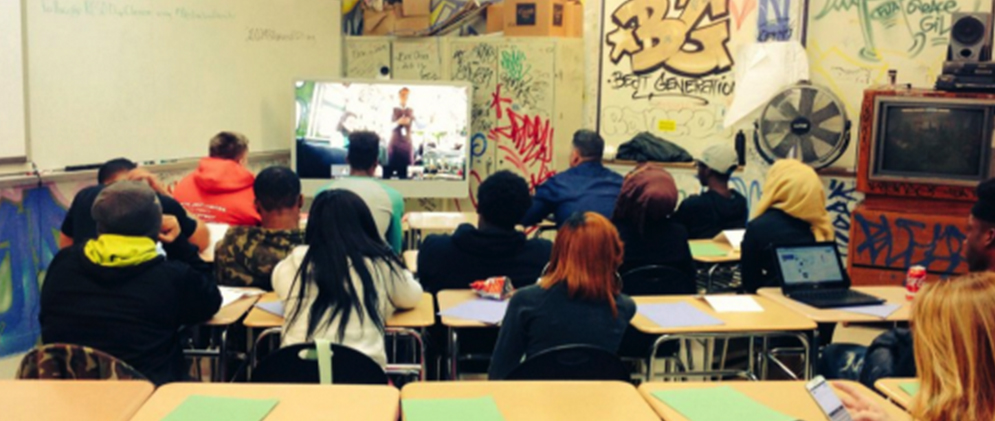Language, Race & Cognition Using Digital Text
From The Theme
DIGITAL LEARNING ENVIRONMENTS
WHAT IF
What if we could investigate how different racial representations impact student learning experiences via digital media?

WHAT WE SET OUT TO DO
We set out to explore how race and culture impact students’ learning and sense of belonging in the classroom. Our research investigated how altering racial representations and discursive identities (ethnic accents) in a digital textbook can impact student performance, as well as their sense of belonging and involvement. Our project built on the contemporary frameworks of multimedia learning and racial priming by conducting a mixed methods analysis of how the representations of race and culture influence student learning in a multimedia space.
WHAT WE FOUND
Our qualitative study examined 35 students as they customized their own digital books. Using a variety of digital photos and videos, each student was asked to drag and drop images into their text. The images were identical except for the racial cues of the characters. We used content analysis of students’ selections and interviews of students (N = 35). We discovered that cues about racial authenticity served as the primary motivation for students selecting particular images. As students were given options, they consistently chose images that reflected their own racial, gender, and linguistic identities. The results of this study indicate the need to recognize how racial cues can help students draw deeper connections to digital content if those cues are culturally authentic.
LEARN MORE
Science in the City Research
BA Brown, K Edouard. “Looks Like Me, Sounds Like Me! Race, Culture, and Language in the Creation of Digital Media.” Equity & Excellence in Education, 2017
PEOPLE BEHIND THE PROJECT
 Bryan Brown is Associate Professor at the Stanford University School of Education, and Associate Dean for Student Affairs. His research explores the relationship between student identity, discourse, classroom culture, and academic achievement. He conducts mixed methodological work exploring how race, language, and culture impact students learning in urban classrooms. His research has expanded beyond his focus on science education, to include issues of college access in urban communities. His recent work explores how classroom and school culture shapes access to higher education.
Bryan Brown is Associate Professor at the Stanford University School of Education, and Associate Dean for Student Affairs. His research explores the relationship between student identity, discourse, classroom culture, and academic achievement. He conducts mixed methodological work exploring how race, language, and culture impact students learning in urban classrooms. His research has expanded beyond his focus on science education, to include issues of college access in urban communities. His recent work explores how classroom and school culture shapes access to higher education.